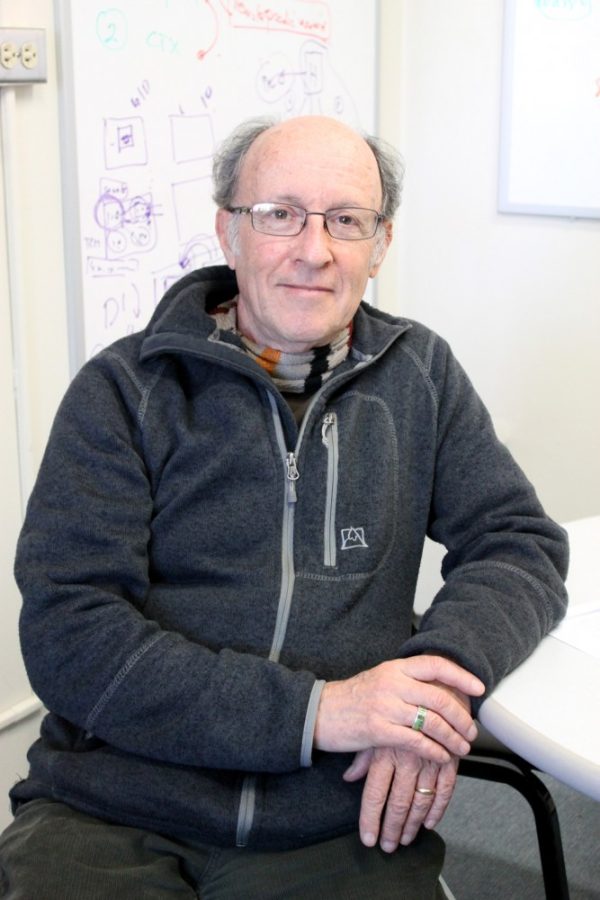A recent survey of the University of Arizona’s academic freedom policy illustrates a concern amongst survey takers regarding free speech practices.
Lynn Nadel, chair of the faculty and regents’ professor of psychology and cognitive science, said that academic freedom is not only crucial to a university but that it also protects the key function of universities.
Academic freedom involves the right to speak freely about things both in your subject matter and about institutional matters without fear of retaliation from both external and internal forces, Nadel said.
Gary Rhoades is an educational policy studies and practice professor, head of the Department of Education Policy Studies and Practice and director of the Center for the Study of Higher Education. He was also the general secretary of the American Association of University Professors, which he said has helped define academic freedom over the past 100 years.
“It provides a freedom that’s really important in a democracy for academics to be able to engage in open exchange in four different areas of activity in academics,” Rhoades said.
The foundation of academic freedom is the freedom to teach, research, comment on public matters and speak about internal institutional matters.
“There should be no retaliation or someone trying to influence or shape what is being said or taught,” Rhoades said. “As long as one clearly remains that their view is independent of the university’s, they can speak about public matters without fear or retribution.”
Nadel said that even with a good written policy in place, we need to revisit the policy to address rising issues.
“There were a lot more people that felt the written protections were good, rather than safe,” Nadel said.
According to the survey of 778 respondents, “More than 50 percent believe that academic freedom at the UA is insufficiently protected.”
Nadel and Rhoades both agreed that the main issues regarding the current UA policy is the lack of clarity regarding who is protected and what to do in the case of an academic freedom complaint.
Among those who took the survey, 49 percent identified as faculty on tenure or tenure track. The survey showed that those who are not on tenure track feel especially vulnerable and distrustful of the current policy.
Rhoades said these people feel at risk and that there are questions of formal protection built into the UA’s policies. He said he believes it’s a fair assessment that the policy is unclear, indicating that it’s problematic they don’t believe their freedom will be protected.
“When I say I’m not afraid to speak up, that’s easy for me to say,” Nadel said. “I’m a [tenured] full professor. What are they going to do to me? But my assistant professor colleague may not be willing to be as outspoken. My [untenured] graduate student may be afraid to say anything at all.”
Zach Brooks, president of the Graduate and Professional Student Council, said that graduate students occupy a strange “middle ground.”
“We have an interesting role, because sometimes we as graduate students are teachers, researchers, clinicians and administrators, but we’re also students,” Brooks said.
He added that, at times, graduate students may feel less able to speak up, and other times, they might have more ability to speak because they’re not full-time employees of the university and have less fear over what they say.
“What we think we’re going to do is make the existing protections a lot better known and make it absolutely clear what things are in place to protect each category of employee,” Nadel said.
Rhoades added that one way to do this is to “meet with smaller targeted groups of employees about these issues” and develop ideas for protective policies that are more inclusive.
Nadel said if you don’t speak up, then you can never determine if you’re protected.
“In order for an individual or, more importantly, for an institution to create a culture where academic freedom is believed in and valued, where people feel confident that it’s going to be enforced, we have to be talking about it and exercising it,” Rhoades said.
There are major issues regarding what the process is when academic freedom is violated.
Both Rhoades and Nadel said the current chart indicating what to do is confusing and complicated. Rhoades said that everyone involved must “work toward better clarification” on what must be done in situations where violations of any one’s academic freedom may have occurred.
“We want to make the processes under the policy much better understood,” Nadel said. “We need to be much more specific and get the information out there, so that people will be more aware of everything that’s in place to protect them.”
Rhoades added that another thing that could be done is for formal leaders of the university to make important affirmations to the university community that academic freedom is valued.
“Universities are among the most important places where we’re creating and disseminating knowledge,” he said. “We have people who are studying a whole variety of issues and topics, and if we allow that institution to be unfairly restricted or confined with what it can talk about and what it can explore, then we’re hampering our ability as a democracy to discuss difficult issues and … engage in all sorts of exploration that makes us interesting important, curious and innovative people.”
_______________
Follow Chastity Laskey on Twitter.









